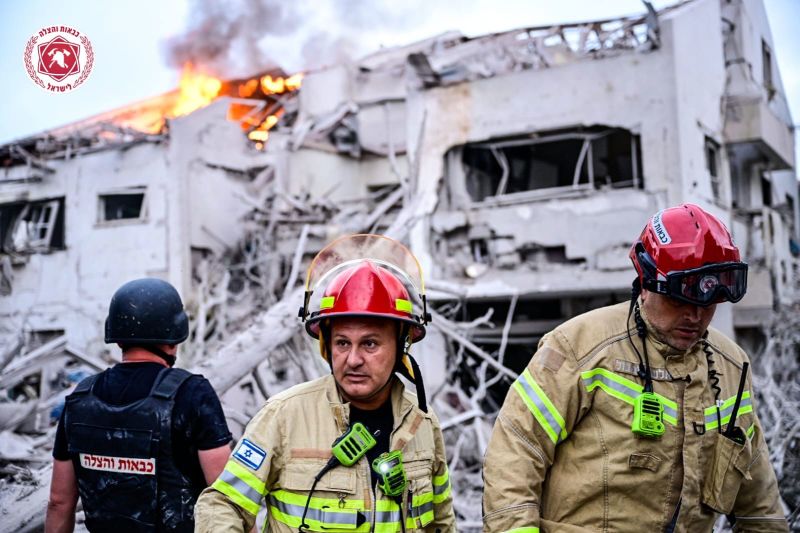
Explosions Over Jerusalem as Israel and Iran Teeter on Edge of Full-Scale War
Today marks one of the most volatile and dangerous escalations we've seen in the Middle East in recent memory. The skies over Jerusalem, Tel Aviv, and Tehran have lit up with deadly missile fire as Israel and Iran exchange relentless strikes—each promising that this is only the beginning.
It all started with an unprecedented move: early Friday morning, Israel launched a large-scale military operation directly targeting Iranian nuclear and military infrastructure. They struck airbases and alleged nuclear development sites across Iran, including areas in Tehran. Some of Iran’s most senior military figures were killed—names that carried enormous weight, like Major General Hossein Salami of the Revolutionary Guard Corps, and Mohammad Bagheri, Iran’s top military chief. Israel claimed these attacks were vital to halting Iran’s nuclear ambitions, accusing Tehran of developing weapons-grade uranium behind closed doors.
Iran’s response came fast and hard. Before sunrise Saturday, it launched multiple waves of missile and drone strikes aimed at Israeli military facilities—but many hit civilian areas. Sirens wailed through cities like Tel Aviv and Jerusalem. Homes were reduced to rubble. At least three people in Israel were confirmed dead, including a woman in Ramat Gan who was killed by falling debris. Over 20 others have been injured.
Also Read:- Measles Threatens Glastonbury Festival Amid Nationwide Surge
- Shock and Concern as Jack Payne Suffers Serious Knee Injury
Meanwhile, in Iran, the damage has been catastrophic. Israeli airstrikes reportedly killed at least 78 people and wounded over 300—most of them civilians. Videos have emerged showing rescue workers digging through collapsed buildings, searching for survivors.
The situation is incredibly fragile. Both sides have made it clear: this is not over. Israeli Prime Minister Benjamin Netanyahu said plainly, “More is on the way.” Iran has vowed a “crushing response,” warning it will now target not only Israeli cities but also any foreign bases that support them.
Israel’s Defense Minister declared Iran had “crossed red lines” by aiming at civilians. That rhetoric alone shows we are dangerously close to a regional war that could spiral beyond these two countries.
And in the background of all this violence looms the now-uncertain future of nuclear diplomacy. Talks between the U.S. and Iran were supposed to resume this weekend, but with missiles in the air and world leaders trading threats, those discussions are hanging by a thread.
It’s hard to overstate just how high the stakes are. What began as targeted military actions could evolve into a wider, more destructive war—pulling in neighboring nations and global powers alike. For now, the region and the world watch and wait as this conflict continues to burn with terrifying intensity.
Read More:



0 Comments